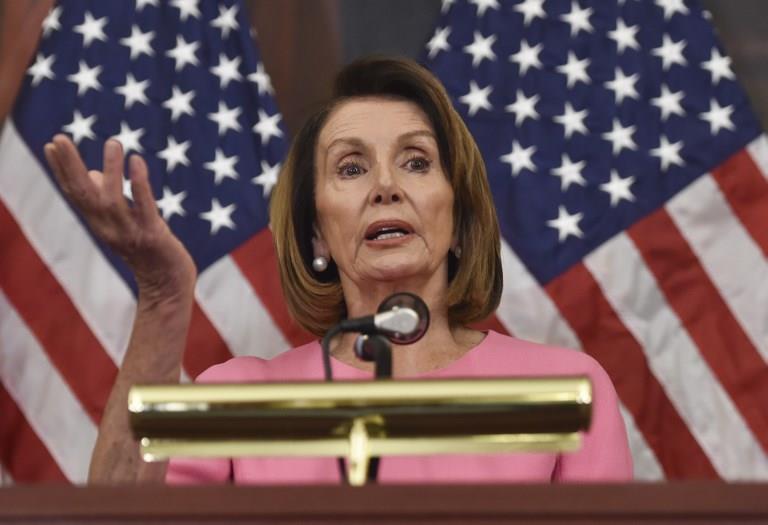
Pelosi Muddies The Waters Of The Taiwan Strait
On Tuesday, the Financial Times published the potentially explosive news that US House Speaker Nancy Pelosi, second-in-line to the presidency behind Vice President Kamala Harris, plans to visit Taiwan next month. The British report cited unnamed sources. Pelosi made no announcement.
The news blindsided the Washington foreign policy world and added another item to a growing list of contentious issues between Washington and Beijing – including, not least, US President Biden's recent gaffe regarding his readiness to“defend Taiwan.”
“This is a really lousy idea,” said a former top US diplomat. In view of the speaker's constitutional position in the presidential succession a visit would be“clearly out of line with the Shanghai Communique” of 1972, which established the One China policy.
In a conversation with reporters July 21, President Biden said the rumored trip was“not a good idea,” adding,“The military thinks it's not a good idea.”
Signals from the Biden Administration on China policy have been confusing and sometimes confrontational.
In April, on a trip to the Solomon Islands, a high-ranking US State Department official, Daniel Kritenbrink who currently serves as assistant secretary of state for East Asian and Pacific Affairs, refused to rule out military action should China be allowed to establish military bases there.
In May, the State Department (temporarily) changed the wording of the One China policy on the Department's website. Three weeks later the changes were reversed.
Meanwhile, hawkish USS Senators Lindsey Graham and Robert Menendez have introduced a bill titled the Taiwan Policy Act 2022, which is slowly making its way toward a full vote in the Senate. An accompanying bill was introduced by Congressman Mike Gallagher in the Hous.
According to Menendez, chairman of the Senate Foreign Relations Committee, the legislation
The suggestion of a Pelosi trip could not have come at a worse time and is receiving public push-back from the White House and the Pentagon. More quietly, a source close to the administration told Asia Times that the Biden NSC was“deeply displeased” to have been blindsided by the speaker's announcement, particularly since Pelosi was aware that the Biden's team had been working on trying to arrange a call between Biden and Chinese president Xi – their first since March.
China was swift to react.“If the US insists on going its own way, China will take forceful measures to resolutely respond and counter it, and we will do what we say,” said Chinese Foreign Ministry spokesperson Wang Wenbin.
Some in the China policy community in Washington have expressed concern that the vehemence of the response to Pelosi's planned trip by the ministry leaves China little choice but to“do something” should the trip take place. Options open to the Chinese include increased overflights of the Taiwan Straits or, more dramatically, the possibility of a PLA air force escort of Pelosi's aircraft.
Quincy Institute East Asia scholar Michael Swaine spoke for many when he said on Wednesday,“Pelosi visiting Taiwan is such a bad idea it's hard to know where to begin in criticizing it. She is a senior member of the United States government. There is no upside to such a visit and only downsides.”
But, as I was recently reminded by a venerable Washington China hand, Pelosi is a China hawk of long standing. Recall the incident some thirty years ago, in September 1991, when Pelosi, a then up-and-coming Democratic backbencher, made a highly publicized visit to Tiananmen Square, site of the 1989 pro-democracy protests that took the lives of hundreds of protestors.
Pelosi's unilateral decision to visit Taipei seems to be making a bad situation with China even worse.
Veteran China watcher Bonnie Glaser , head of the German Marshall Fund's Asia program, told reporters that the military's concerns stemmed from the risk of an incident in the South China Sea.
“That suggests the US military sees something unusual in how the Chinese are operating and how they are responding to US operations,” she said.“Some of the Chinese reactions to US FONOPs [freedom of navigation operations] in the South China Sea have been unusually aggressive.”

Legal Disclaimer:
MENAFN provides the
information “as is” without warranty of any kind. We do not accept
any responsibility or liability for the accuracy, content, images,
videos, licenses, completeness, legality, or reliability of the information
contained in this article. If you have any complaints or copyright
issues related to this article, kindly contact the provider above.


















Comments
No comment